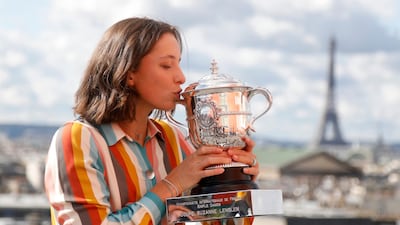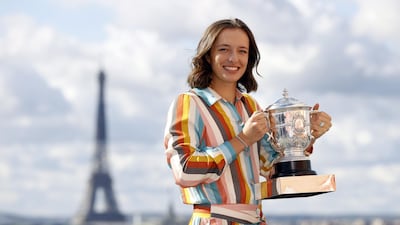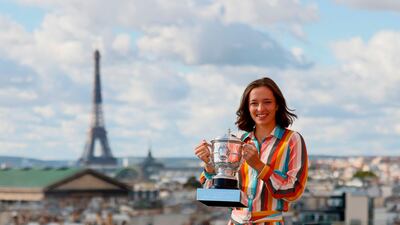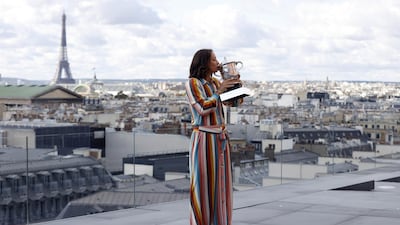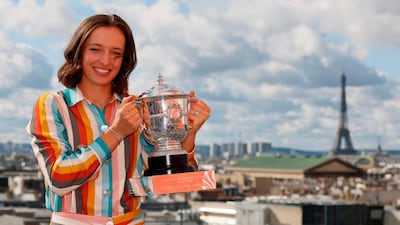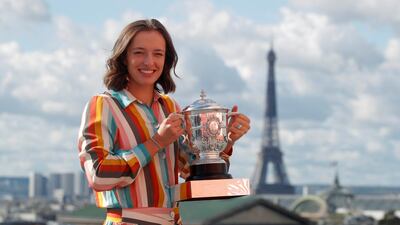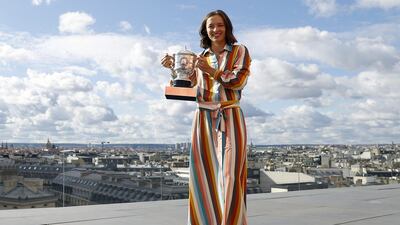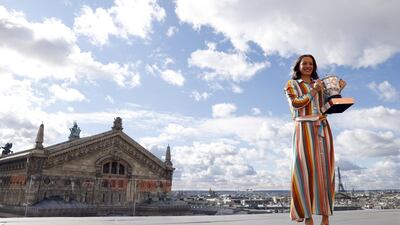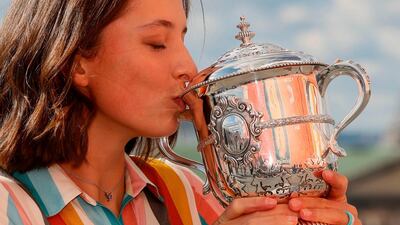As the women's 2020 tennis season enters its closing stages, players are already making plans for next year and are expected to be back on the road in less than two months' time.
The majority of the world’s top-20 players have wrapped up their season – only one international-level tournament remains on the schedule, in Linz next month – and are in a race against time to recover and start preparing for 2021.
The pandemic wreaked havoc with the tennis calendar this year, forcing a five-month shutdown from March to August. The WTA tour restarted in early August and a condensed schedule of 11 tournaments, including two Grand Slams, was reworked in order to provide playing opportunities, albeit in tricky, controlled environments and with hectic travel plans and abrupt surface changes involved. A total of 21 tour-level women's events were cancelled since August and further uncertainty looms for the 2021 season.
While players are grateful they got a chance to finally get back on court to compete, most of them admit that life in a travelling tennis bubble has taken a serious toll on their mental health.
“I think a break is much-needed because even though we didn’t play many tournaments, the stress of trying not to test positive at each tournament, the travel … travelling is a nightmare now. You’re scared of catching [the virus] and it’s stressful. I just need some time off,” said Greek world No 22 Maria Sakkari after concluding her season with a semi-final defeat in Ostrava on Saturday.
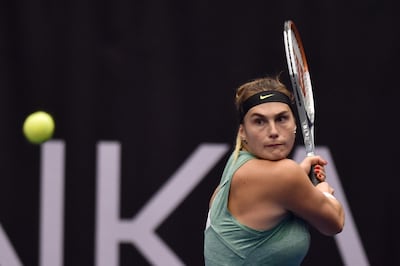
Missing the fans
Tournaments had varying levels of restrictions and protocols in place to minimise the risk of the coronavirus but players were mostly confined to their hotel rooms when they were not competing. They were limited to having fewer members of their staff with them at events, had to play in front of empty stands and were tested every four to five days.
“The hardest part for me is that we’re playing without the crowd because I like the energy when people are watching us, all these emotions I’m going through, to feel the support from the people is really important for me,” said Belarus’ world No 11 Aryna Sabalenka, who swept the singles and doubles titles in Ostrava on Sunday.
The long hiatus affected players in different ways. Some came blasting out of the blocks while others struggled to get things going. Ex-world No 1 Karolina Pliskova belongs to the latter group.
“I didn’t know how I’m going to react after five months of not playing, just practicing. Even the brain just stops,” said the Czech, who started 2020 ranked No 2 and is now down to No 6. “I didn’t really find the rhythm of tournaments and of playing matches and of travelling. I think nothing really worked out.”
The schedule itself was reshuffled and the postponement of the French Open from May to September meant that players contested the US Open and Roland Garros within a six-week period, switching from hard courts to clay to hard courts again.
Special waivers were needed to allow players to travel from Europe to the United States and back to Europe again. Without the freedom of re-entering a specific region, many players have been on the road for over three months, and some might not even make it home for Christmas.
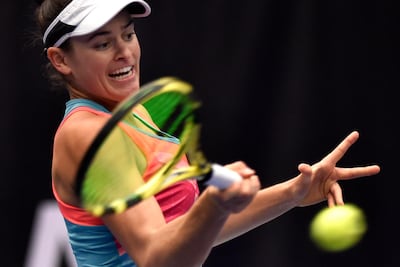
US Open semi-finalist Jennifer Brady has not been back to Florida since July. The American world No 24 played World Team Tennis then competed in Lexington (where she won the title), went to New York for the Western & Southern Open and the US Open tournaments before heading to Germany for a one-week clay preparation ahead of Roland Garros in Paris, followed by Ostrava in the Czech Republic.
“It’s kind of just been nonstop. After my loss in Roland Garros I was actually thinking, ‘Wow it feels like everything I just accomplished over the last month didn’t happen’. And that’s not something I wanted to feel,” said the 25-year-old.
Brady intends to stay in Regensburg, Germany to train with her coach Michael Geserer until they head to Australia mid-December for the start of the 2021 season.
“With Covid and stuff, technically if I were to go back to America, I couldn’t get back into Germany. Because I’ve been in the European Union for a while, we’re able to travel within Europe,” explained Brady. “And there’s also just the quick turnaround for the season. The season ends and in early December we’ll have to, as of now, go to Australia. So there’s not really a whole lot of time.”
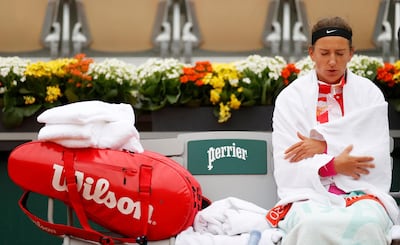
Travel woes
The tennis year typically begins in Australia with a series of tournaments staged in various cities such as Brisbane, Adelaide and Hobart before the Australian Open kicks off in Melbourne in the third week of January.
Due to the restrictions in place because of Covid-19, players have been instructed to fly to Australia by mid-December for a mandatory two-week quarantine period Down Under before they start playing tournaments there.
It remains unclear which lead-up events will be staged and whether the Australian government will open up the borders between states in order to allow players to compete in different tournaments prior to the opening Grand Slam of the season. Tennis Australia officials are also trying to reach an agreement with the government that would confine players to a training bubble upon arrival to the country, rather than go through a strict two-week quarantine in their hotel rooms.
Former world No 1 Victoria Azarenka, who won the Western & Southern Open and has reached finals at the US Open and Ostrava since the tour restarted, believes mental preparation will be key ahead of next season.
The Belarusian admits the swift surface changes over the past few weeks, as well as the constant travel and the back-to-back Grand Slams required a “long psychological focus” from her and she ended her season by fighting through a migraine on the eve of her Ostrava final against Sabalenka.
“I think it’s the importance of keeping your mind fresh. I think the physicality of the situation is not different from before but mentally there is a lot stronger toll on players,” said Azarenka.
“So I think that’s something to, not necessarily watch out for, but just accept. I think we all need to learn and accept what is happening.
“I think what I’ve taken out [of this situation] is that in such a difficult time we’re able to still do our job and I think that shouldn’t be unnoticed.”
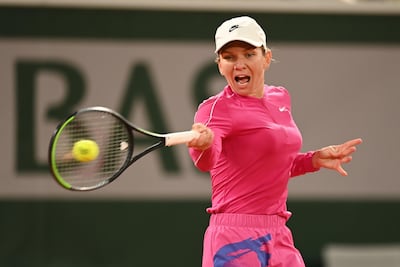
A call for more responsibility
Azarenka has called on her peers to play their part in helping keep the tour as safe as possible, and hopes everyone adheres to whichever protocols will be in place at tournaments next season.
“I hope that we will bring more responsibility from players and everybody else into the next year to be able to minimise the risk and maximise the potential to play more tournaments and ability to host more tournaments,” said the 31-year-old.
“I think it’s everybody’s job to be responsible for that, myself included, so we can kind of take, even if the situation doesn’t change, but we can maybe be a bit in better control of our environment because negligence from other people I think a lot of times causes more chaos and more risk for others. So I hope that one thing that players, tournament staff and everybody involved in our job take that to the next year to be more responsible, more vigilant with what they do.”
Sticking to the rules over the past few weeks has been challenging for some, but most of the women’s players have adapted well and have grown accustomed to the so-called “new normal”. But 2021 will pose a different challenge since we are potentially looking at a full season of tennis bubbles and tight restrictions.
“We got used to this environment. But for sure for long-term, it would be tough to do a year-long environment like this, or the players will have to pick their tournaments, where they go, because mentally it’s tough,” said Artemon Apostu-Efremov, the co-coach of two-time major champion Simona Halep.
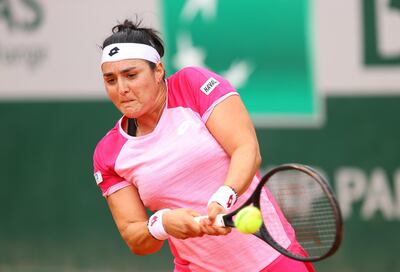
Revised ranking system wasn’t great for everyone
One player relieved to be taking a break is Arab No 1 Ons Jabeur, who ends her 2020 season at a career-high 31 in the world after reaching the quarter-finals or better in five tournaments this year. The Tunisian had a specific target at the start of the season, aiming to break the top 20 for the first time. But due to the revised ranking system put in place because of Covid-19 that limits fluctuations in the rankings and prevents players from dropping points they accumulated last year, Jabeur wasn't able to reach her goal, despite her consistent results.
She can find some solace in the fact that she would be No 14 in the world right now had the original ranking system been in place.
“I think if there was no Covid and there wasn’t the new ranking system I would have been in the top 20 already. It’s going to continue to be my goal. I’m pretty happy with how the season went. Not easy with the Covid but I’m going to try to be ready for next year,” said Jabeur .
